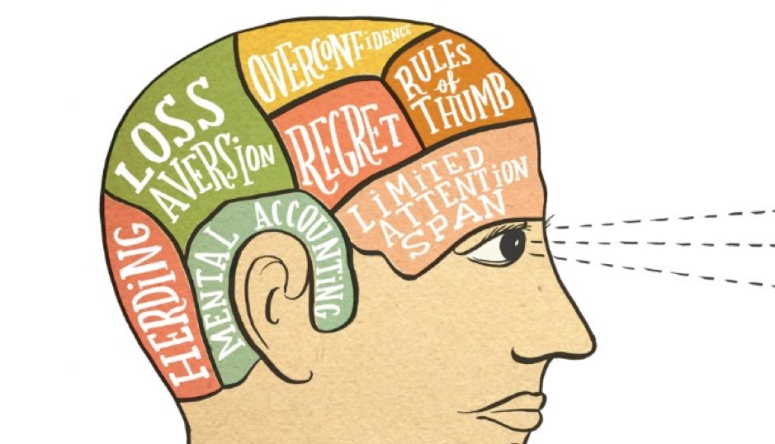No products in the cart.
Stock Market
The Psychology of the Endowment Effect in Stock Trading — 7 Powerful Psychological Barriers You Can Overcome for Smarter Investment Decisions
The Psychology of the Endowment Effect in Stock Trading — 7 Powerful Psychological Barriers You Can Overcome for Smarter Investment Decisions

In the intricate world of stock trading, psychological biases play a crucial role in shaping investor behavior. The endowment effect, a fascinating cognitive phenomenon, stands out as a significant psychological barrier that can dramatically impact investment decisions, particularly in the dynamic landscape of the Philippine Stock Exchange (PSE).
Understanding the Endowment Effect: A Psychological Deep Dive

What is the Endowment Effect?
The endowment effect is a cognitive bias where individuals ascribe more value to an object they own than to an identical object they do not own. In the context of stock trading, this means investors tend to overvalue stocks they currently hold, creating irrational attachment and resistance to selling.
Psychological Mechanisms Behind the Endowment Effect
1. Cognitive Valuation Distortion
Investors experiencing the endowment effect demonstrate a psychological phenomenon where:
- Owned stocks are perceived as more valuable
- Potential loss feels more painful than potential gain
- Emotional attachment overrides rational decision-making
2. Loss Aversion Principle
Developed by psychologists Daniel Kahneman and Amos Tversky, the loss aversion principle suggests:
- People feel the pain of loss more intensely than the pleasure of equivalent gains
- Investors are more likely to hold losing stocks to avoid realizing a loss
- Psychological comfort trumps financial logic
Manifestations in the Philippine Stock Market
Local Market Characteristics
The Philippine Stock Exchange presents unique conditions that amplify the endowment effect:
- Strong familial and community investment networks
- Limited financial literacy
- Emotional attachment to local company stocks
Case Studies: Endowment Effect in Action
Scenario 1: Family-Inherited Stocks
Consider a typical scenario in the Philippine context:
- An investor inherits stocks from a family member
- Emotional value significantly exceeds market valuation
- Reluctance to sell despite poor performance
Scenario 2: Long-Term Holdings
Another prevalent pattern involves:
- Stocks held for extended periods
- Psychological investment beyond financial metrics
- Resistance to portfolio rebalancing
Psychological Strategies to Mitigate Endowment Effect
1. Cognitive Reframing
Techniques to overcome psychological barriers:
- Objective performance evaluation
- Detached financial analysis
- Regular portfolio review
2. Quantitative Decision-Making Frameworks
Recommended approaches:
- Establishing clear selling criteria
- Using stop-loss mechanisms
- Implementing systematic review processes
Research Insights
Academic Perspectives
Recent studies highlight:
- Endowment effect more pronounced in less sophisticated markets
- Cultural factors significantly influence cognitive biases
- Technology can help mitigate psychological barriers
Technological Solutions
Digital Tools and Psychological Intervention
Emerging technologies offer innovative solutions:
- AI-powered portfolio analysis
- Algorithmic trading strategies
- Behavioral finance tracking tools
Cultural Considerations in the Philippine Context
Psychological and Cultural Dynamics
Unique factors influencing stock trading psychology:
- Strong community and familial investment networks
- Emotional significance of financial decisions
- Limited financial education infrastructure
Risk Management Strategies
Overcoming Psychological Barriers
Comprehensive approach to mitigating endowment effect:
- Continuous financial education
- Systematic investment approaches
- Emotional intelligence in financial decision-making
Investment Discipline Techniques
Practical Implementation
Recommended strategies:
- Set predefined exit strategies
- Use quantitative evaluation metrics
- Maintain investment journal
- Regular psychological self-assessment
Technological and Psychological Convergence
Future of Behavioral Finance
Emerging trends:
- Machine learning in bias detection
- Personalized financial coaching
- Advanced psychological profiling tools
Conclusion: Navigating Psychological Complexities

The endowment effect represents a profound psychological challenge in stock trading. Successful investors must develop:
- Self-awareness
- Systematic approach
- Emotional intelligence
- Continuous learning mindset
Key Takeaways
- Psychological biases significantly impact investment decisions
- Awareness is the first step to overcoming cognitive barriers
- Technology and education can help mitigate irrational behaviors
Final Thoughts
Understanding the endowment effect is not about eliminating emotions but creating a balanced approach that recognizes psychological influences while maintaining rational decision-making.
Disclaimer
This blog post is for informational purposes only and should not be considered financial advice. Always consult with financial professionals and conduct thorough research before making investment decisions.
READ MORE RELATED BLOGS!
READ MORE AND SHARE!
TSOK Chronicles: Unleashing Passion, Dedication, and Excellence in 2024
2023 Your Practical Wedding Guide
Investments and Finance Ultimate Guide
If you like this article please share and love my page DIARYNIGRACIA PAGE Questions, suggestions send me at diarynigracia@gmail.com
You may also follow my Instagram account featuring microliterature #microlit. For more of my artworks, visit DIARYNIGRACIA INSTAGRAM


Peace and love to you.